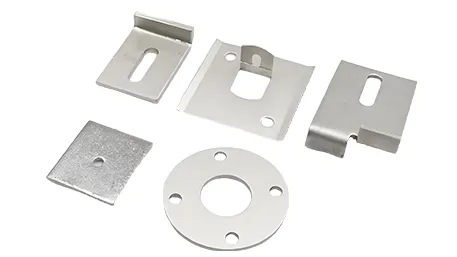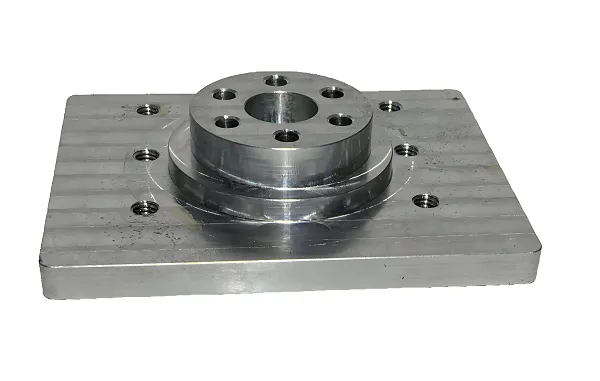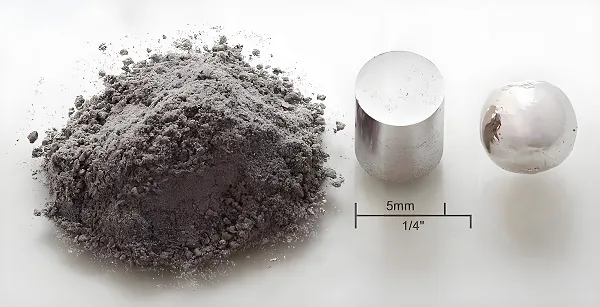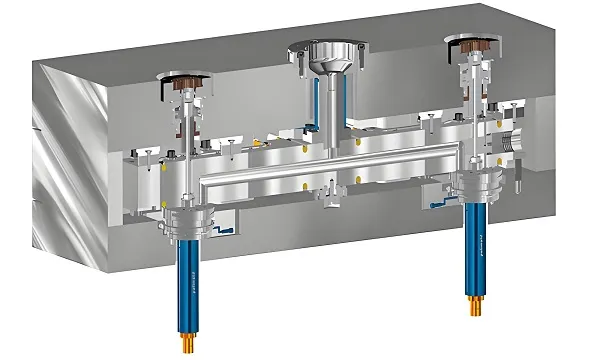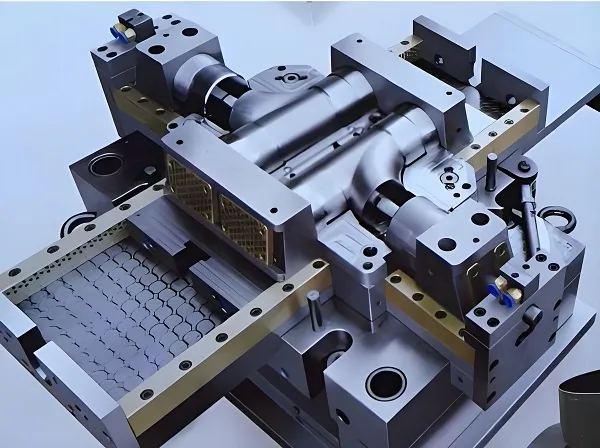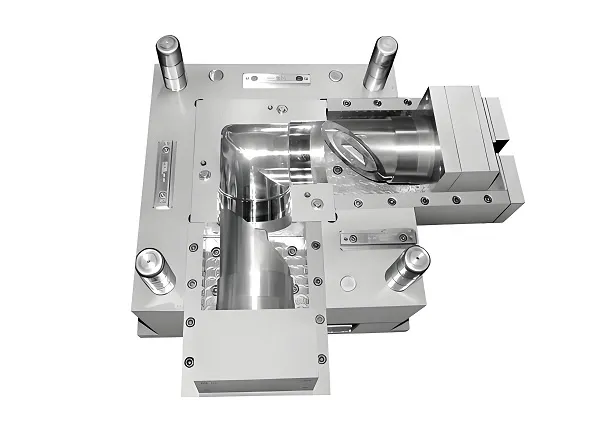In the dynamic landscape of modern manufacturing, precision machining is the cornerstone of innovation across industries. Our CNC machining services specialize in transforming steel and aluminum alloys into high – performance components that meet the most demanding specifications. This article explores our technical capabilities, material expertise, customization process, quality control protocols, and industry applications, showcasing how we deliver solutions that drive efficiency, reliability, and competitive advantage.
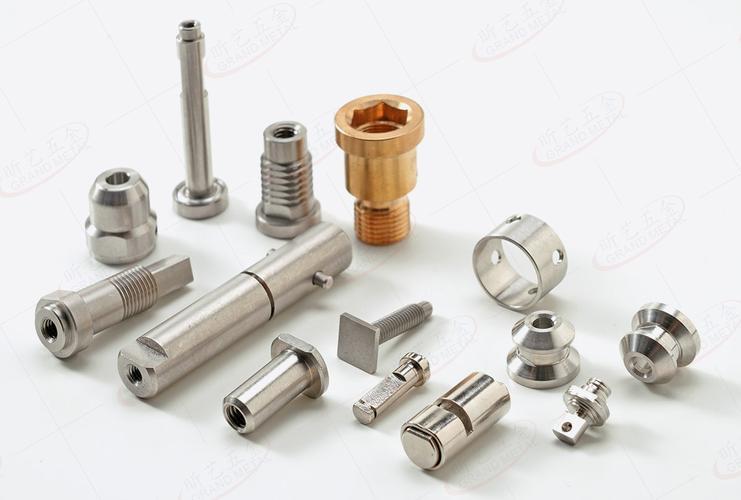
I. Technical Capabilities: Mastering Metals with Precision
(A) Micron – Level Dimensional Accuracy
Our state – of – the – art CNC machining centers achieve positioning accuracies of ±0.002mm and repeat positioning accuracies of ±0.001mm. For critical components like aerospace fasteners or medical implants, these tolerances ensure perfect fits and optimal performance. Advanced Renishaw probing systems verify dimensions in real – time, reducing human error and ensuring consistency across production runs of any size.
(B) Complex Geometry Machining
Whether it’s intricate internal channels for heat exchangers, multi – faceted aerospace brackets, or ergonomic medical device housings, our 5 – axis CNC systems excel at producing complex geometries. By minimizing setup changes and tool approach angles, we achieve surface finishes as fine as Ra 0.2μm, eliminating the need for secondary finishing operations and reducing lead times by up to 40%.
(C) High – Speed Production with Uncompromised Quality
Our CNC machining centers feature spindle speeds up to 30,000 RPM and rapid traverse rates of 60m/min, enabling efficient production of both prototypes and large – scale batches. Automated tool changers with up to 60 tools reduce idle time, while robotic part handling systems ensure continuous operation. For example, machining aluminum alloy 6061 components transitions from 25 minutes via conventional methods to just 8 minutes with our optimized CNC processes, all while maintaining ISO 2768 – f fine tolerance standards.
II. End – to – End Customization: Tailoring Solutions to Your Needs
(A) Collaborative Design Optimization
Our engineering team begins by understanding your specific requirements:
- Material performance: Simulating stress distributions under dynamic loads (e.g., 150MPa for structural steel components)
- Environmental compatibility: Selecting alloys resistant to corrosion (e.g., ASTM B117 salt spray testing for marine applications)
- Assembly constraints: Designing features like chamfers, threads, and surface textures to streamline integration
Using advanced CAD/CAM software, we generate virtual prototypes with FEA – validated designs, reducing physical prototyping costs by 60% and accelerating time – to – market.
(B) Strategic Material Selection
We offer expertise in a comprehensive range of metals:
- Steel Alloys:
- 4140: Quenched and tempered for high – strength structural components (1,000 – 1,200 MPa tensile strength)
- 304/316 Stainless: Passivated for corrosion – resistant medical and food processing equipment
- Tool Steel (D2, H13): Heat – treated to 60 HRC for molds and dies
- Aluminum Alloys:
- 6061 – T6: Balanced strength and machinability for general engineering applications
- 7075 – T6: High – strength aerospace components (572 MPa tensile strength)
- 5052: Marine – grade alloy with excellent corrosion resistance
Each material undergoes rigorous pre – machining testing, including hardness verification and chemical composition analysis via XRF spectroscopy.
(C) Precision Manufacturing Workflow
Our production process follows a meticulously controlled sequence:
- Raw material inspection: Certificates of Conformance (CoC) and in – house verification
- CNC machining: Multi – axis simultaneous operations with live tooling
- Heat treatment: Induction hardening, annealing, or stress relieving as required
- Surface finishing: Options include anodizing (up to 25μm thickness), powder coating, or electroless nickel plating
- Automated inspection: 3D scanning and CMM verification with 0.001mm resolution
Customers receive real – time production updates through our cloud – based tracking system, complete with detailed quality reports and digital twins of their components.
(D) Certified Quality Assurance
Every component undergoes:
- Dimensional verification: Coordinate measuring machines (CMMs) with ISO 10360 accuracy
- Material integrity checks: Ultrasonic testing (UT) and magnetic particle inspection (MPI) for critical components
- Performance validation: Tensile, fatigue, and hardness testing to ASTM standards
- Traceability: Full documentation from raw material to finished part, including batch numbers and test results
Our ISO 9001:2015, AS9100D, and IATF 16949 certifications ensure compliance with aerospace, automotive, and medical industry standards.
III. Strategic Material Expertise: Steel vs. Aluminum
(A) Steel Alloys: Strength and Durability
- 4140 Alloy Steel: Ideal for high – stress applications such as axles, gears, and shafts. Heat – treated to 30 – 36 HRC, it offers a tensile strength of 950 – 1,100 MPa and excellent fatigue resistance.
- 304 Stainless Steel: With 18% chromium and 8% nickel, it provides superior corrosion resistance for food processing equipment, marine components, and medical devices. Passivation treatments enhance its resistance to pitting and crevice corrosion.
- Tool Steel (H13): Heat – treated to 50 – 54 HRC, it excels in high – temperature applications like die casting molds and extrusion dies, maintaining hardness up to 550°C.
(B) Aluminum Alloys: Lightweight and Versatile
- 6061 – T6: The most widely used aluminum alloy, offering a balance of strength (310 MPa tensile), machinability, and weldability. It’s ideal for structural components, frames, and general – purpose parts.
- 7075 – T6: Renowned for its high strength – to – weight ratio (572 MPa tensile), it’s a staple in aerospace applications, sports equipment, and high – performance automotive components.
- 5052: With excellent corrosion resistance, especially in marine environments, it’s commonly used for boat hulls, fuel tanks, and chemical processing equipment.
(C) Material Selection Guide
| Application | Recommended Steel Alloy | Recommended Aluminum Alloy |
|---|---|---|
| High – stress machinery | 4140 alloy steel | 7075 – T6 |
| Corrosion – prone areas | 316 stainless steel | 5052 |
| Lightweight structures | 17 – 4 PH stainless | 6061 – T6 |
| High – temperature use | H13 tool steel | 2024 – T3 |
IV. Stringent Quality Control: From Raw Material to Finished Part
(A) Incoming Material Validation
Every batch undergoes:
- Spectroscopic analysis: Verifying alloy composition to within 0.01%
- Hardness testing: Rockwell/Brinell testers ensuring compliance with specified ranges
- Microstructural examination: SEM imaging confirming grain structure uniformity
Certificates of Conformance (CoC) accompany all materials, traceable to mill heat numbers.
(B) In – Process Monitoring
Our smart factories utilize:
- Real – time spindle load monitoring: Detecting tool wear before dimensional deviation occurs
- Laser scanning: Ensuring form accuracy to ±0.005mm
- Thermal imaging: Monitoring cutting temperatures to prevent material annealing
Machine learning algorithms predict tool life with 98% accuracy, triggering automatic tool changes to maintain micron – level precision.
(C) Final Inspection Protocol
Each component undergoes:
- 100% dimensional check: CMM verification with ISO 10360 – compliant probes
- Surface finish analysis: Profilometers ensuring Ra ≤0.8μm for critical mating surfaces
- Non – destructive testing (NDT): UT, MPI, or dye penetrant inspection for welds and critical features
- Functional testing: Simulating real – world conditions (e.g., pressure cycling for hydraulic components)
Parts failing inspection are automatically segregated and undergo root cause analysis via Six Sigma methodologies.
V. Diverse Industry Applications: Powering Innovation Across Sectors
(A) Aerospace & Defense
- Structural components: CNC – machined 7075 aluminum alloy brackets and 4140 steel fasteners with 12.9 – grade strength
- Engine parts: Titanium alloy turbine housings and 316 stainless steel exhaust components
- Avionics enclosures: 6061 aluminum alloy chassis with EMI/RFI shielding properties
Our components meet AS9100D standards and undergo rigorous fatigue testing to ensure reliability in extreme environments.
(B) Automotive
- Powertrain components: 4140 steel crankshafts and 6061 aluminum transmission housings
- Suspension systems: 4340 alloy steel control arms and 7075 aluminum uprights
- EV battery enclosures: Lightweight 6061 – T6 aluminum frames with integrated cooling channels
Our automotive parts comply with IATF 16949 standards and are optimized for weight reduction and performance.
(C) Medical & Dental
- Surgical instruments: 17 – 4 PH stainless steel forceps and 6061 aluminum alloy handles
- Implantable devices: Titanium alloy spinal implants and 316L stainless steel bone screws
- Diagnostic equipment: CNC – machined aluminum alloy housings for MRI and CT scanners
All medical components are manufactured in a controlled environment and undergo biocompatibility testing (ISO 10993) and sterilization validation.
(D) Industrial Equipment
- Hydraulic systems: 4140 steel cylinders and 6061 aluminum valve blocks with 0.002mm roundness tolerance
- Robotics: 7075 aluminum alloy 关节组件 and 4340 steel shafts for high – precision motion control
- Material handling: 304 stainless steel conveyor components and 5052 aluminum alloy frames for food processing environments
Our industrial components are designed for durability and efficiency, reducing downtime and maintenance costs.
VI. Frequently Asked Questions (FAQ)
(A) What is the tightest tolerance you can achieve?
We routinely achieve ISO 2768 – f fine tolerances (±0.05mm for lengths up to 100mm) and can produce components with tolerances as tight as ±0.002mm for specialized applications like aerospace and medical devices.
(B) How do you ensure corrosion resistance in steel components?
We offer multiple solutions:
- Electroplating (zinc, nickel, chrome)
- Powder coating (epoxy or polyester)
- Passivation (for stainless steels)
- Hot – dip galvanizing (for structural components)
Our coatings meet ASTM B117 salt spray testing requirements for 500+ hours without corrosion.
(C) Can you reverse – engineer existing components?
Yes. Our 3D scanning systems capture geometries with 0.005mm accuracy. We then generate CAD models, analyze material properties via spectroscopy, and reproduce parts with improved tolerances and performance.
(D) What is your lead time for prototyping vs. production?
Prototype quantities (1 – 5 pieces) typically take 3 – 5 business days for aluminum and 5 – 7 days for steel. Production runs (1,000+) average 3 – 4 weeks, with expedited options available for urgent needs (e.g., 48 – hour turnaround for critical replacement parts).
(E) Do your services include finishing and assembly?
Yes. We offer comprehensive secondary services:
- Surface treatments: Anodizing, plating, painting
- Heat treatments: Hardening, annealing, stress relieving
- Machining: Threading, tapping, broaching
- Assembly: Kitting, sub – assembly, full assembly with torque control
We provide single – source solutions to streamline your supply chain and reduce coordination efforts.
VII. Customer Testimonials
A leading aerospace manufacturer reduced component weight by 23% and improved fatigue life by 150% after switching to our CNC – machined 7075 aluminum alloy parts. Our optimized designs and precision machining eliminated stress concentrations, resulting in significant performance gains.
An automotive OEM reduced production costs by 18% and improved quality control by partnering with us for CNC – machined steel transmission components. Our automated manufacturing processes and rigorous inspection protocols reduced rejects from 0.7% to 0.03%, saving over $500,000 annually in warranty claims.
Partner with Us for Precision Metal Machining
Whether you need a single prototype or 100,000 production parts, our team of certified engineers and technicians is ready to deliver solutions that exceed your expectations. Contact us today to discuss your project requirements and experience the difference that precision CNC machining can make in your industry.
Whether you need a single prototype or 100,000 production parts, our team of certified engineers and technicians is ready to deliver solutions that exceed your expectations. Contact us today to discuss your project requirements and experience the difference that precision CNC machining can make in your industry.

